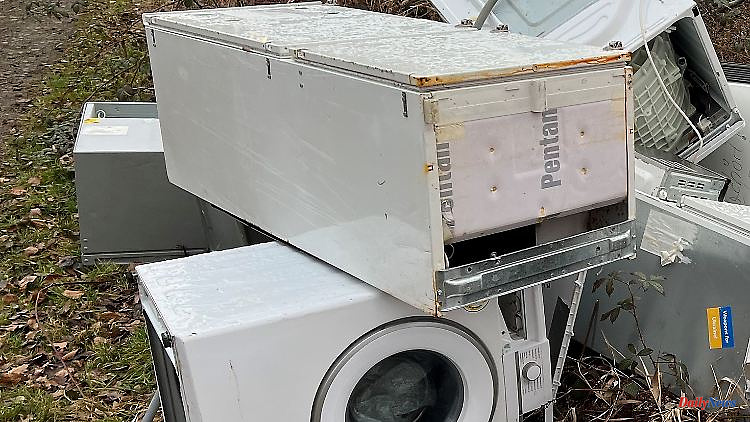One habitat, another landfill: Foresters and forest owners are repeatedly confronted with mountains of illegal waste in the forest. This is a danger for the forest ecosystem.
Kassel/Friedrichsdorf (dpa/lhe) - Household appliances, rubble or even animal carcasses: time and again people misuse the forests as landfills. "Trash dumped illegally in the forest is always a problem," said Christian Raupach, director of the Hessian Forest Owners' Association. The forest offices in Central, North and South Hesse also report that illegal waste is a constant problem, said Michelle Sundermann, spokeswoman for the Hesse forest administration. However, there has been a certain relaxation since the lockdowns during the corona pandemic, even if the littering of the forests is not statistically recorded, explained Sundermann.
According to Sundermann, there were two possible explanations: "Because the lockdown made people at home and they had time to clean up properly and because the landfills were closed just at the beginning of the pandemic measures and people couldn't dispose of their garbage legally ." Both are no longer the case, which is why the high volume of waste has decreased.
Nonetheless, both state and private forest owners continue to see a problem in litter coming not only from private individuals but also from commercial offenders. "There's almost nothing that you can't find in the forest as rubbish," said Raupach. Examples are leftovers from renovation work, rubble or even whole truckloads full of broken electronic devices. With higher garbage and landfill fees, illegally disposed waste from companies also increases, said Raupach. Sundermann also reports on old batteries, paint or varnish. "We've even had a dead dog wrapped in a blanket before," Sundermann said.
Foresters and forest owners often know exactly where the garbage can be found: "Where you can easily drive with a car and trailer and the place is still a little shielded," said Sundermann. There is often a copycat effect in places where there is already rubbish - especially with green waste. This is how small, unofficial garbage dumps are created in the forest.
Sundermann distinguishes between two types of garbage. "Non-organic waste obscures and compacts the soil, in the worst case it leaks out or decomposes, poisoning the soil and groundwater." Forest animals could injure themselves or choke on them.
Supposedly natural waste is also a problem. "Organic waste brings plant material into the forest that we don't want there because the sensitive ecosystem is not adapted to the high nutrient input," said Sundermann. So-called garden refugees, i.e. non-native plants, could displace native flora.
There are also seasonal effects when it comes to the pollution of the forest. "The more time people spend in the forest, the greater the amount of trash that gets left behind," Raupach said. With the warmer weather, the legacies of walkers and hikers should also grow again.












